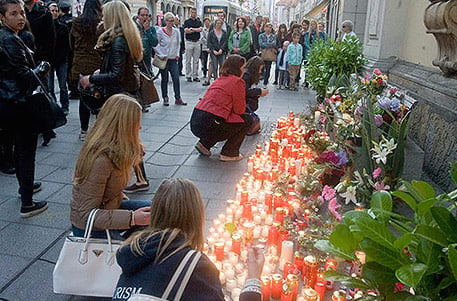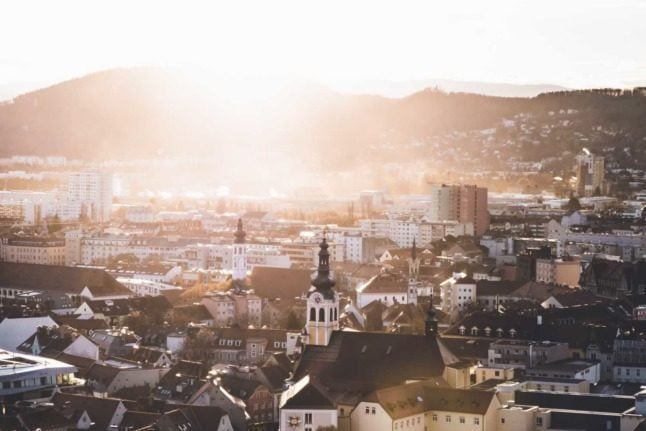Alen. R (26) killed three people including a young boy, and injured 34 others.
Police said that he showed symptoms of psychosis when first questioned and has been evasive when asked about his motives in subsequent interrogations.
They are now examining CCTV footage from 30 cameras to piece together exactly what happened.
Meanwhile the Kronen Zeitung newspaper says it has learned “off the record” from police sources that Alen R. deleted tweets and messages on his Twitter and Facebook accounts before his murderous rampage – and that police are now investigating whether the attack was premeditated.
He appeared to have been active on Twitter, with 2,578 followers, including many from Arab countries and one suspected neo-Nazi. The Kronen Zeitung’s sources said that it was unusual for a small-time car dealer to be so active on Twitter.
Police have ruled out a terrorist or political motive for the attack, although they said there were indications that he had driven into the city centre with the purpose of killing people. “He said that he felt persecuted and this made him run people over,” Graz prosecutor Christian Kroschl told a press conference on Tuesday.
Identity of female victim still unknown
One of his victims, a woman aged between 25 and 35, has still not been identified. Police have released photos of her and a description of what she was wearing when she died – a blue denim jacket, a black and white striped t-shirt, black jeans, black socks and dark canvas shoes. There has been some speculation that she may have been a beggar.
The third victim was a 28-year-old Muslim man who worked for Graz social services and got married just two weeks ago. Also originally from Bosnia, he will be buried there. His wife, who saw him die, was injured and is being treated in hospital.
Police said all three victims were hit by the car at high speed and died instantly. Alen R. was driving at speeds of up to 100 km an hour through Graz city centre.
He was born in Bosnia but moved to Austria with his family when he was four years old, to escape the Bosnian war. He attended school in Austria and afterwards did an apprenticeship. Although he was a Muslim he was not “particularly religious”, Kroschl said.
Police spokesman Rene Kornberger told journalists that reports that he told police when he was arrested that he “did it for Allah” were not true.
Police will be interviewing around 150 witnesses as well as Alen R’s family members and friends. So far, statements from his parents and his estranged wife have not shed much light on his motive, Kornberger said.
He had a restraining order placed on him and was barred from the family home at the end of May for “acts of violence”. Police said that during this time he had sublet a flat and then moved back in with his parents.
Police also confirmed that the suspect had a weapons license revoked and that they confiscated a semi-automatic weapon and ammunition that he owned several months ago, after several incidents of domestic violence. No other weapons were found during a search of his house, and he tested negative for alcohol when he was arrested.
A memorial march and service for the victims will take place in Graz on Sunday evening. Austrian President Heinz Fischer and members of the Styrian government will be present.
Mourners will gather on Griesplatz at 4.30pm and will make their way to Jakominiplatz and then Herrengasse and Hauptplatz. An official memorial service will be held at 6pm in front of the town hall.



 Please whitelist us to continue reading.
Please whitelist us to continue reading.